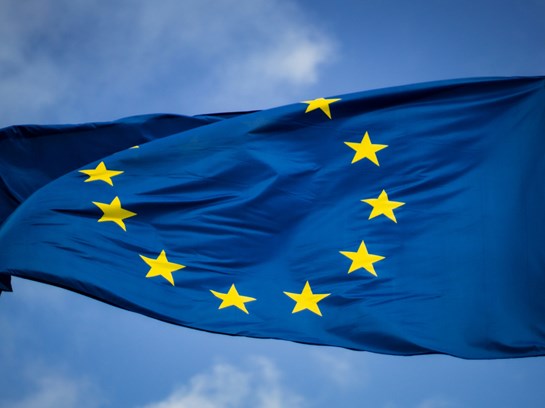
When designing policies that address traditional challenges such as poverty, unemployment, or inequality, populations usually expect tangible outcomes in months or years. However, governments face two key issues when it comes to greenhouse gas emissions. Firstly, the environmental consequences of greenhouse gas emissions and their reduction are felt over a much larger time span. Secondly, global cooperation is necessary to tackle this issue, as the emissions of one nation affect every nation.
The current geopolitical situation, however, is full of barriers to long-term planning and global cooperation. World governments are increasingly preoccupied with, and world populations are ever-more distracted by, divisive issues such as military conflict, trade competition, and cyber security. Within the European Union (EU), these factors and others are setting the stage for a decreasing emphasis on environmental policymaking.

Source: Eurobarometer
This shift in policy direction can already be seen. On June 12th, the European Commission notified carmakers that from July 2024, it would provisionally apply tariffs of up to 38.1% on electric vehicles (EVs) imported from China. Unlike the US, EVs made in China have performed increasingly well in European markets, earning roughly one-fifth of the bloc's total market as a cost-effective alternative to domestic brands. The decision to raise tariffs clearly demonstrates the focus on protecting domestic industry and employment over supporting a 'green' transition.
Furthermore, the European parliamentary election results, confirmed just days after the rise in tariffs, are likely to reinforce the bloc's prioritisation of domestic and economic concerns over environmental goals.

Source: European Parliament
The centre-right European People's Party (EPP) consolidated its position as the largest single party with an additional 14 seats. Their leader has already made clear his intention to prevent the ban on the sale of combustion engine automobiles in 2035, a key part of the Green Deal policy package.
On the other hand, the greatest advocates of environmental policy, the European Greens/European Free Alliance (EFA), suffered a 19-seat setback in the new, larger parliament. This reflects a shift in not just policy makers' prioritisation of green issues but also in the concerns of the wider European electorate. With centre-right parties likely to turn to the right for additional support and with green parties having less representation, environmental policies are set for further resistance in parliament.
It is unlikely, though, that even with the new distribution of seats in the European Parliament, we will see an unwinding of existing environmental policies. For example, increased sustainability reporting requirements introduced as part of the Green Deal are likely to continue to apply to businesses operating in European markets.
Instead of removing what is already in place, we are likely to see a slowdown in the implementation of new green policies, and green initiatives aimed at reducing emissions at the expense of businesses or consumers are unlikely to receive parliamentary support. Businesses should, therefore, expect their reporting requirements to remain stable in the medium term.
So, what does this all mean? As Europe lurches further to the right, the emphasis on shorter-term goals is likely to favour businesses operating in European markets, and the long-term goals of environmentalism will take a back seat. This sets up an interesting dichotomy among European populations, where the frustrations of interest groups in sectors such as farming will be eased, whilst those of environmental groups could experience a revival. The new parliament could cause a reactionary shift in operational risks posed to businesses operating in European markets, steering the focus of activism and industrial action towards those businesses accused of reinforcing climate concerns.
Axco is the leading supplier of global insurance market information with over 55 years’ experience in researching and publishing industry intelligence on insurance and employee benefits. Its unique business model and methods of research have enabled the development of an extensive suite of products comprising in-depth reports, focused profiles, Q&A databases, intelligent questioning tools, and email services which are delivered to every corner of the globe.